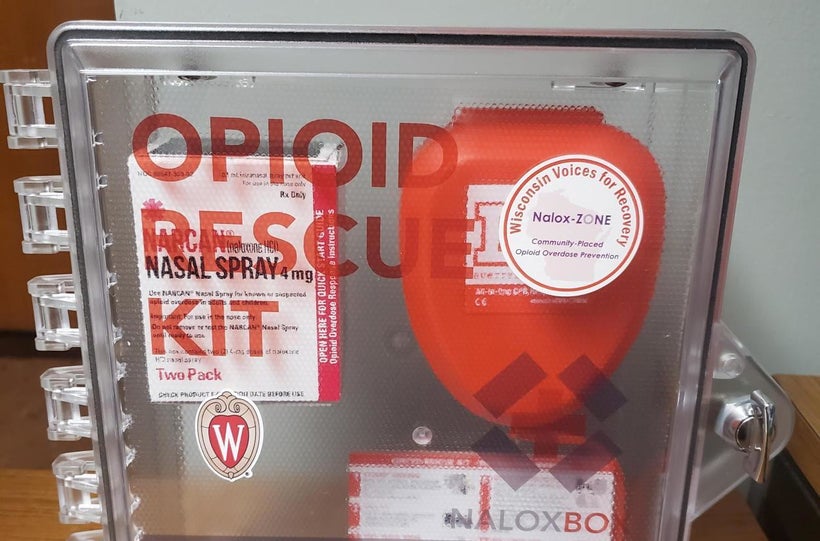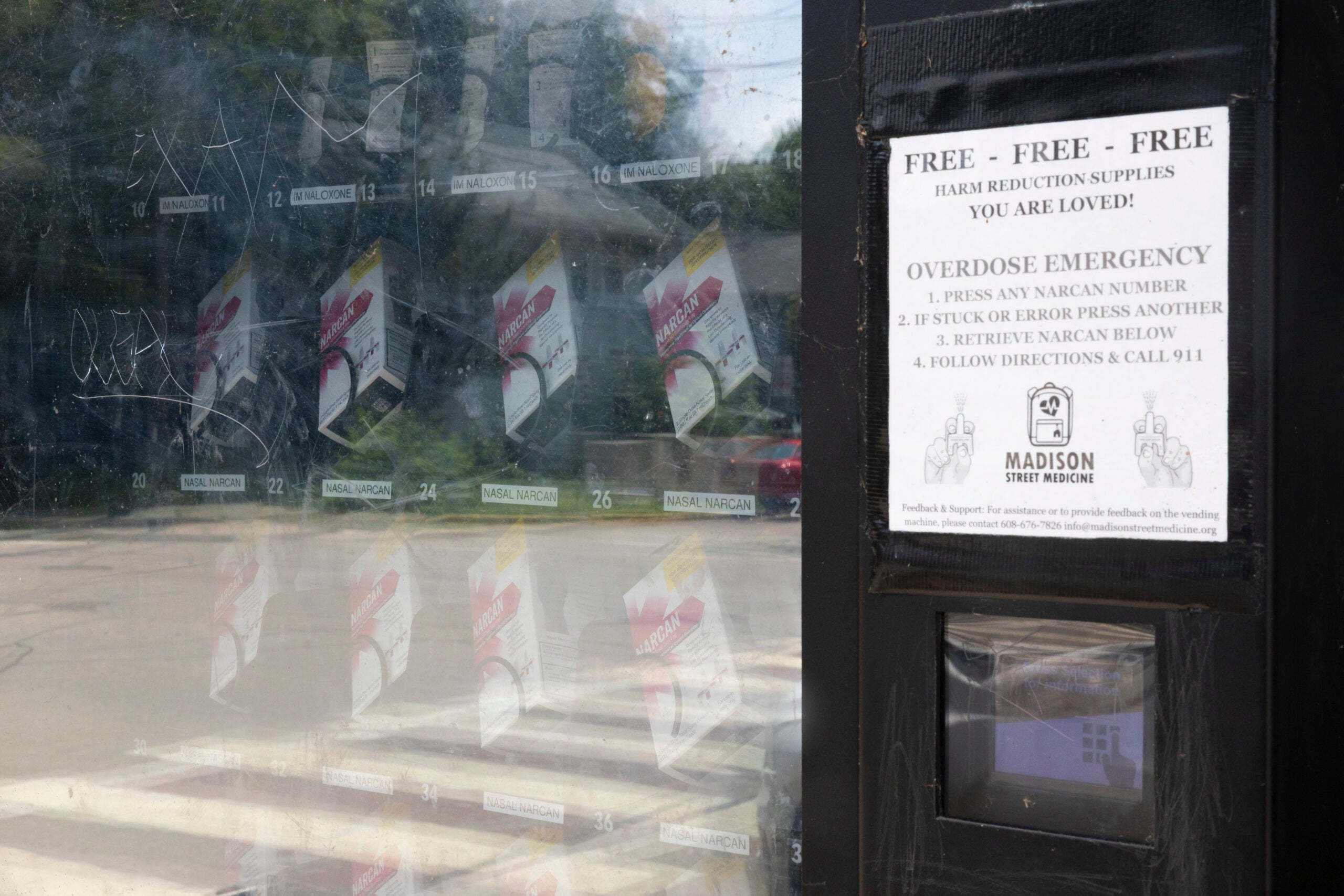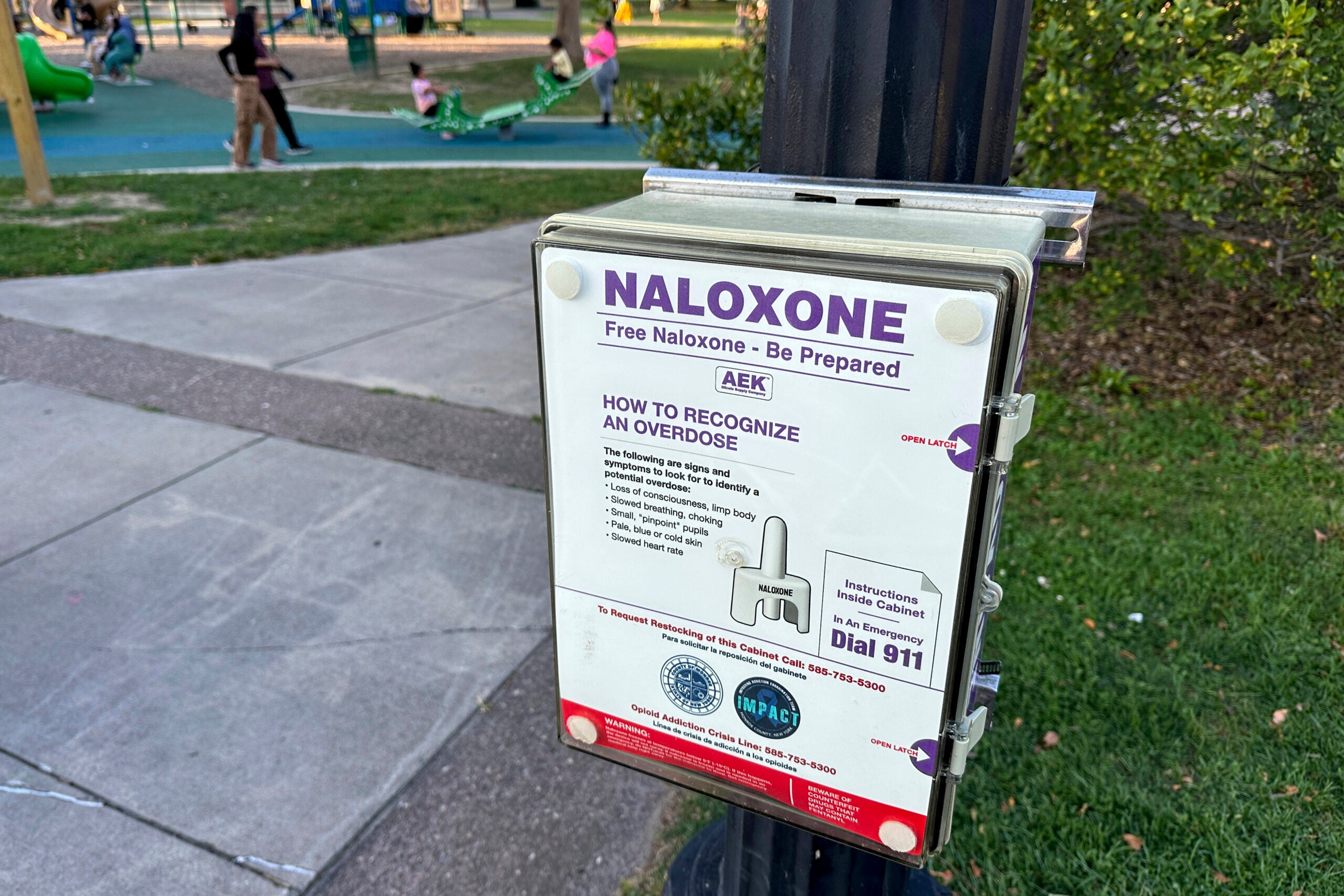Cade Reddington was an 18-year-old freshman at the University of Wisconsin-Milwaukee when he took what he thought was a single Percocet.
The pill turned out to be 100 percent fentanyl. Cade told a friend he felt “yucky” and went back to his dorm room where his roommates watched him die, said his mom, Michelle Kullmann.
“They had no idea what the sign of a fentanyl poisoning or a drug overdose looked like, or had access to life-saving Narcan,” Kullmann said.
News with a little more humanity
WPR’s “Wisconsin Today” newsletter keeps you connected to the state you love without feeling overwhelmed. No paywall. No agenda. No corporate filter.
After Cade’s death, Kullmann and another mother, Erin Rachwal of Pewaukee, who also lost her son to fentanyl poising, worked with the University of Wisconsin System to get naloxone distribution boxes for people overdosing from opioids installed on 11 of the 13 campuses.
On Tuesday, Kullmann, of Waunakee, and Rachwal testified before the Senate Committee on Education about installing the boxes containing emergency kits of the overdose-reversing drug commonly referred to as Narcan in all of Wisconsin’s public and private schools.
“I’m certain if Cade and his friends had been educated in high school that any drug not prescribed could contain a lethal dosage of fentanyl, and they were educated on the signs of a drug overdose, and they knew about Narcan, they could have saved his life,” Kullmann said.
Under current law, Wisconsin school boards and the governing bodies of private schools are required to supply standard first aid kits for use during emergencies.
The bill adds that schools would be required to maintain a “usable supply” of an opioid antagonist, like Narcan, on site and in a place that is accessible at all times.
Some school districts have already done this, including the Denmark School District and School District of Beloit.
Sen. Jesse James, R-Altoona, who is a police officer in the Village of Cadott, co-sponsored the bill. He says the opioid epidemic knows no boundaries and is affecting youth across the state.
“Overdoses in Wisconsin are taking place not only at our universities, but at our high schools and middle schools as well,” James said. “This should not be about the image of our schools, but about life and death.”
Drug deaths nationwide hit a new record in 2022 with 109,680 deaths, according to preliminary data recently released by the Centers for Disease Control and Prevention.
But some groups including the Wisconsin School Boards Association wrote letters opposing the bill, because of the cost to schools.
The estimated cost is $31 to $100 per box, which contains two doses of generic naloxone. The state Department of Health Services reported in December 2022 that the cost for purchasing one, two-box dose of Narcan was $47.50. In some cases, two doses are required to save a person’s life.
Gov. Tony Evers included spending $2 million to create an Opioid Antagonist Program for schools in his proposed 2023-25 budget. But the Republican-led budget committee cut the program last month when they removed 545 total budget proposals.
Daniel Henderson, a program coordinator with Wisconsin Council of Religious & Independent Schools, a non-partisan association representing 600 religious and independent schools and more than 100,000 students, said there are too many unanswered questions still about supplying Narcan.
“Will there be liability protections if we misdiagnose or administer it wrong? Who will pay for the medication?” Henderson said. “How many doses does the school keep, what is adequate supply? And who will train our staff to administer the Narcan?”
The Wisconsin Department of Public Instruction said it could support the bill if it is modified. State law currently doesn’t allow for a school to be prescribed an opioid antagonist. Schools can get a prescription for emergency epinephrine, also known as an EpiPen. DPI is asking for a similar law.
Licensed school health care providers such as school nurses need medical orders to administer medications. School medical advisors are hesitant to write such orders without clear protections, Kevyn Radcliffe, DPI’s Legislative Liaison wrote in a letter to Legislators.
“Opioid antagonists can save lives, but we need to reduce the red tape to get them into schools,” the letter says. “To save lives, schools need to have barriers removed to obtaining, stocking, and using opioid antagonists. And educators need the tools and time to address substance use comprehensively. This change would alleviate the liability worries many professionals face when weighing the choice between stocking and administering a lifesaving drug and following their professional code of conduct.”
Radcliffe also pointed out the bill is an unfunded mandate. DPI recommends using money the state has gotten from settling opioid lawsuits with drug companies for staff development and training, and opioid antagonist purchases.
Wisconsin Public Radio, © Copyright 2026, Board of Regents of the University of Wisconsin System and Wisconsin Educational Communications Board.






